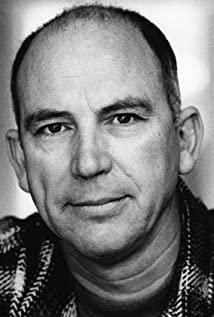I saw a question on the forum: "What is the belief of the male protagonist? Is it simply not killing?" I personally like this movie a lot. Whether it's the filmmaking itself, or the true story itself. Here are some points to share on this issue.
#It is not the occurrence of events that leads to the emergence of beliefs, but beliefs that drive the process of the entire event. #
1. What is the faith of the male protagonist? The core of the male protagonist's belief is: There is a God. is the only true God. God created human beings and loves us. But man himself has sinned, cannot see God's face, and is separated from God. Jesus Christ is the only Savior who delivers us from the bondage of sin, because the price of sin is death, eternal separation from God. And there will be judgment for all. Jesus said, "I am the way, the truth, and the life, and no one comes to the Father (God) except through me." The Bible that the man often reads says: "God so loved the world that he gave his only begotten Son (Jesus) gave it to them, that whoever believes in him should not perish, but have eternal life.”
2. Faith is only true if it can be lived out in life, and it can be used to see whether a faith is good or bad. Dawes's beliefs manifested in his life:
A. When he saw the sixth of the Ten Commandments from God on the wall, "Thou shalt not kill." He realized that he might have nearly killed his brother. Guilt in the heart is a rejection of sin. Conscience is one of the evidences that we are created by God.
One of the reasons B. Dawes didn't pick up the gun was that he once took the gun from his father and pointed it at him during a parental quarrel. Although he didn't press the trigger. But when he told his comrades in arms, he said: "But I have already robbed him in my heart to kill him." He repented before God for this, and no longer took a gun, because of the curse, abuse and hatred of others in his heart, In the eyes of God, it is sin, and killing people is black, and it is not much whiter because of it. So ask yourself, none of us is innocent. There is no one who does not need Jesus.
C. Dawes insisted on going to the front; he didn't report the beatings of his comrades; he didn't back down from what God asked him to do because he was locked up or even going to jail. Because he believed in what Jesus taught: To love God is to keep His commandments. And love your neighbor as yourself.
D. The male protagonist Dawes also has times of weakness because we are human. While in confinement, he was angry when he missed his fiancée; on the battlefield, he had nightmares about enemy troops coming toward him and wept bitterly. But he has a faith to rely on, and he can pray to God. (The commander asked before, God never spoke to you personally? Dawes said, "No. But I'm not crazy.") When the U.S. military was defeated, he felt lost and asked God in tears: "God, what the hell are you doing? What do you want me to do, I don't understand." At this time, Dawes heard the shouts of his comrades in the distance: "Who will save me?" This is God's answer to his prayer in a way that Dawes can understand! He also immediately responded to God and began to rescue his comrades. His relationship with God was intimate, and God was with him!
This is the true meaning of faith. Faith is the standard and reliance for you to be a person and do things every moment in your life. So good faith will change life and make your life better! I think a lot of people were moved by Dawes's personality and envied his beliefs. This belief is real and everyone can have it. real!
3. Stick to your beliefs and choose the "right" thing to do. The justice and love of God are with Dawes.
In fact, Dawes can seem to "do not violate his beliefs" to cater to his environment in many cases. But he didn't. The right and wrong of truth do not change because of people. (One of the crimes of mankind is to decide what is right and what is wrong according to one's own liking.)
A. He can choose not to join the army, stay at home to marry his lover, and live his life. The battlefield of World War II did not hit the North American continent, but hit their town. But he was moved by it, he couldn't watch others shed blood to protect his family and his country, and enjoy himself. He did not bury his inner feelings, but chose to face it and join the army.
B. Dawes may choose not to disobey the order of his superiors and take up the gun. You don't have to kill people if you have a gun, but to protect yourself. Dawes is so stupid, why is he so stubborn. That's what I thought when I watched the movie. Even his fiancée persuaded him that you should pick it up and practice it, can't you show it off? But Dawes insisted not to take it. Maybe it was because of the dispute with his father when he was a teenager. He saw the sinful nature in his heart and stopped touching the gun. It was to stay away from "temptation". impulse. He has his own stubbornness and only saves people on the battlefield, not murder. Sticking to the faith, uncompromising, God protects him, the front line of life and death, he saved 75 comrades in arms. But not injured! ! Some people ask is there no sign of God anymore? Is it not?
After believing in God, I don't think there is anything purely coincidental in this world.
C. Dawes could choose not to heal the Japanese soldiers in the tunnels. But he helped the Japanese soldiers bandage treatment. It is good not to save the enemy army. But "loving your neighbor as yourself" is the right thing God requires. Saturday was the Sabbath, and he could choose not to go to battle. But Jesus taught that saving people on the Sabbath is more important. After he prayed, he chose to go to the front line to save people. The end of the movie is not the end of this true story. He kicked off the grenade and protected his comrades. After he was injured, he was carried down by a stretcher and on the way back to the camp. Because he found another wounded, Dawes rolled off the stretcher by himself. He had to give the stretcher to his comrades and walked back to the first aid Standing, there are at least seventeen pieces of shrapnel in his leg at this time.
If our intersection with this film ends in the image of Dawes being awarded the Medal of Honor in the brain. That's really a pity. I hope we don't leave the theater and let the wind blow our hearts away from the faith in Dawes. But to think carefully. The heart is moved because of resonance, and where does the resonance come from? What do I have to do with this resonance?
Thank you for reading to the end, God loves you and blesses you!
View more about Hacksaw Ridge reviews











